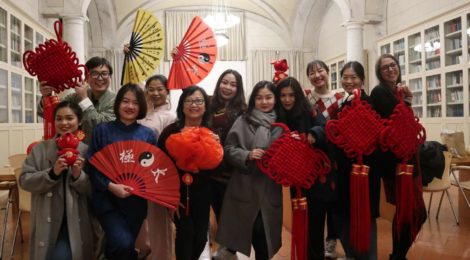
Galilei Circle of Friends – Interview with Director Huang Yunlin
Dear Director Huang, we are honoured to interview you today. You can definitely be considered a member of the Galilei Institute “Circle of Friends” in Chongqing and Italy. How are you these days? Could you please introduce yourself to our readers?
First of all, thank you for inviting me for this interview. I work now in Italy as the Chinese Director of the Confucius Institute of Pisa (from now on CI) and at the same time, I am a teacher in Chongqing University. Although I have been deeply hurt by the bad news of the outbreak of Covid-19 in China and Italy, my life in Pisa has not been affected too much. I have been working from home, attending online meetings with my colleagues. I sometimes visit the virtual classrooms and find it amazing to greet the students in Chinese.
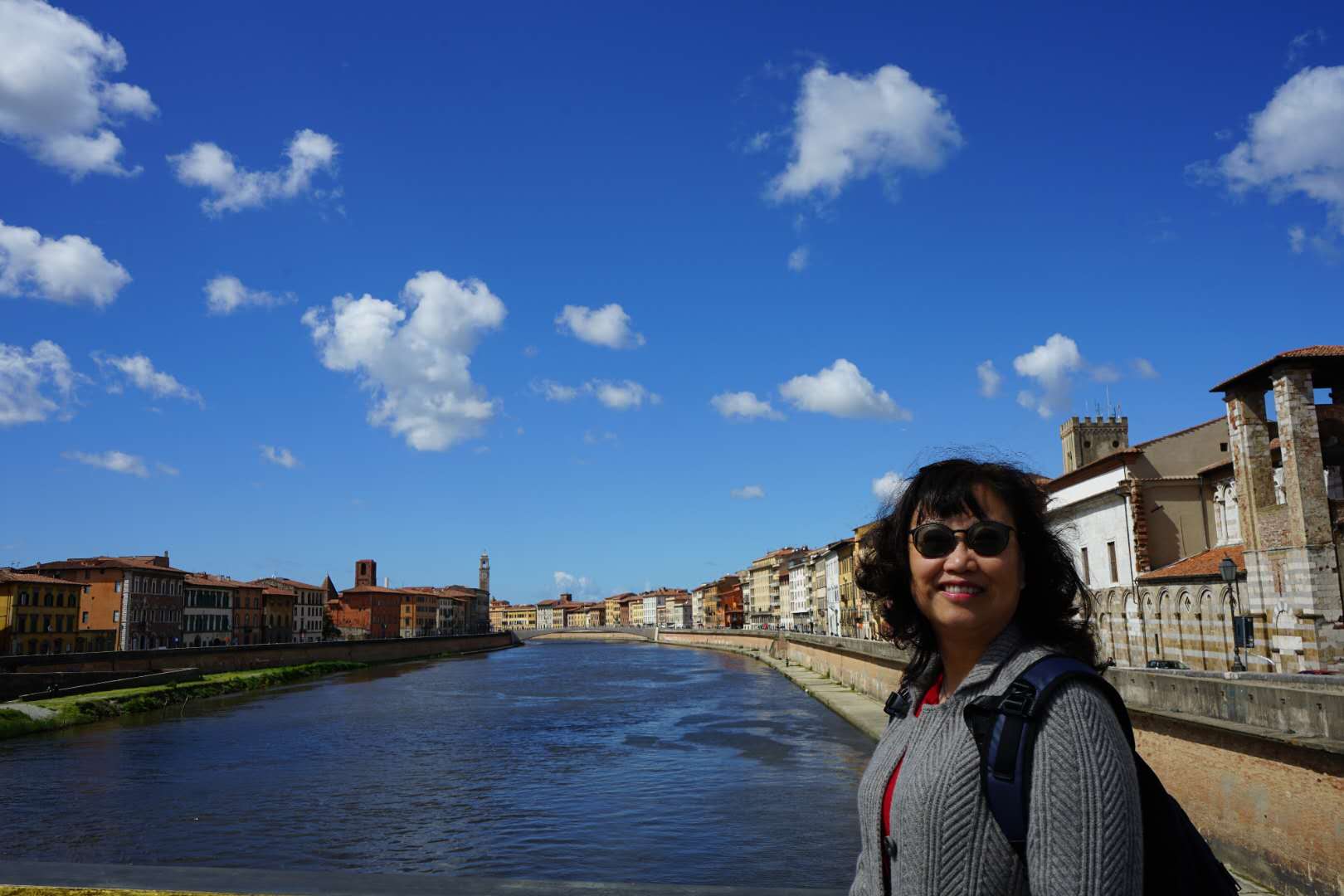
Why do you have such a special relations with Italy and Sant’Anna?
Do you believe that I like Italy since it hosted the FIFA World Cup in 1990? During those days, in the mid-nights or early mornings after I breastfeed my newborn daughter, I joined my family watching the football matches. Although after many years I don’t remember all the players’ names, “Roberto Baggio” is always in my mind.
My relation with Sant’Anna started in 2006, when a group of its students joined my Chinese MBA students in the course of “Intercultural Communication”. In 2010, I was invited by Confucius Institute of Pisa to have a meeting on local Chinese textbook when I was the vice dean in charge of master programs in the School of Foreign Languages and Cultures in Chongqing University. I got to know some Italian local Chinese teachers and the general situation of the Chinese language teaching/learning in Italy. After the meeting, I spent a couple of days visiting Rome, Venice, Florence, well impressed by queues and street vendors in the hot summer. Then, some years later, when offered this job, I gladly accepted and here I am.
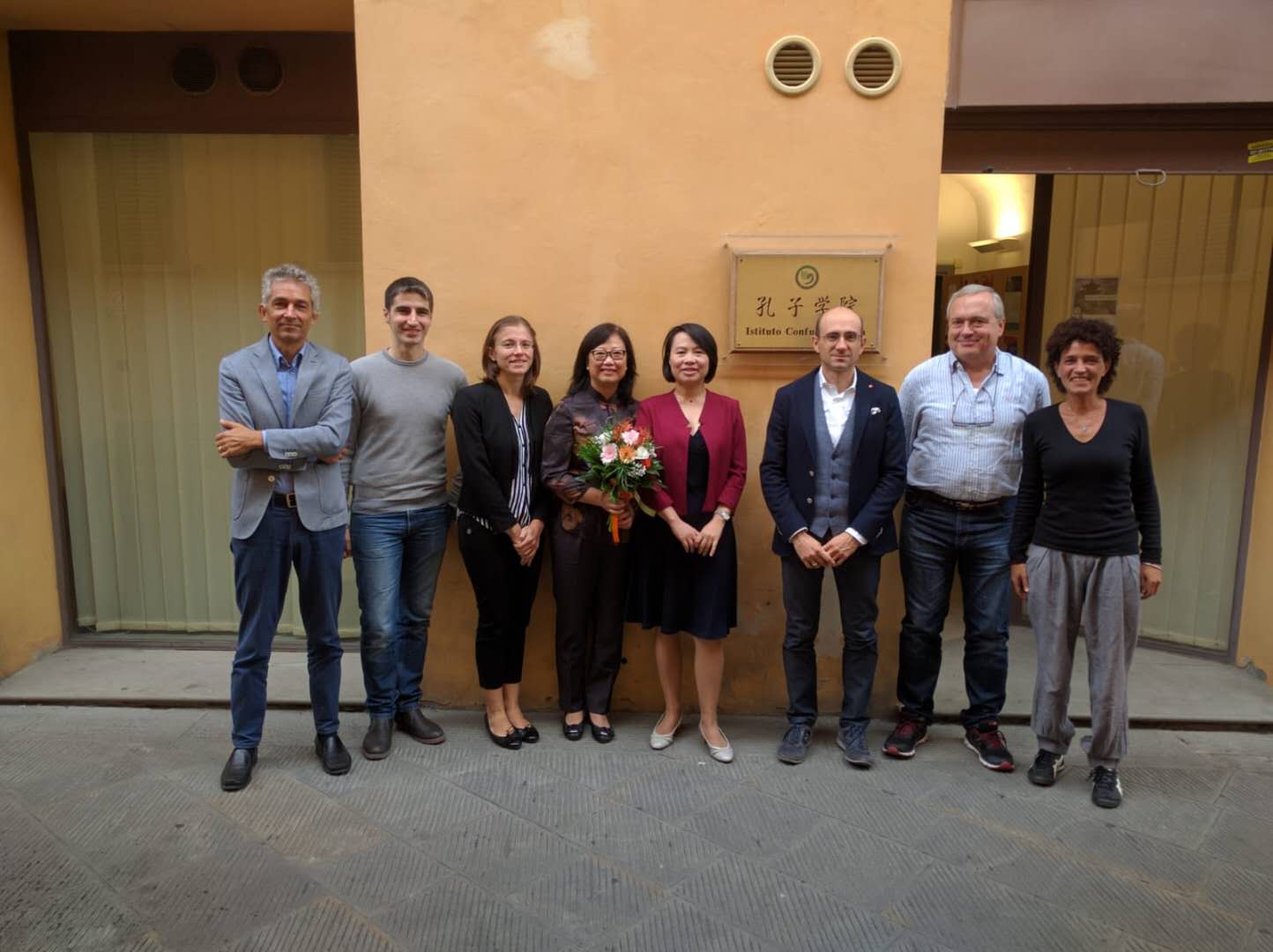
What do you like most about Italy and especially Pisa? Do you find many differences between our two countries way of life?
As I tell my Italian friends all the time, weather in Italy is my favourite thing, since I come from Chongqing, where is often cloudy and summers are very hot and humid. I enjoy my life in Pisa, which I consider a very liveable university city. I’ve experienced Italy vibrancy through all kinds of art works, world-renowned cuisine, diversified landscapes and friendly people. I am convinced that my staying in Italy represents an important experience in my life and an unforgettable memory.
I would say the main difference lies in our attitude towards life. Chinese are always working and struggling for a better life while Italians people are able to enjoy everything the present offers them. Chinese mixed work with life differently, while Italians spend more time chatting with friends and generously share their feeling and time with others.
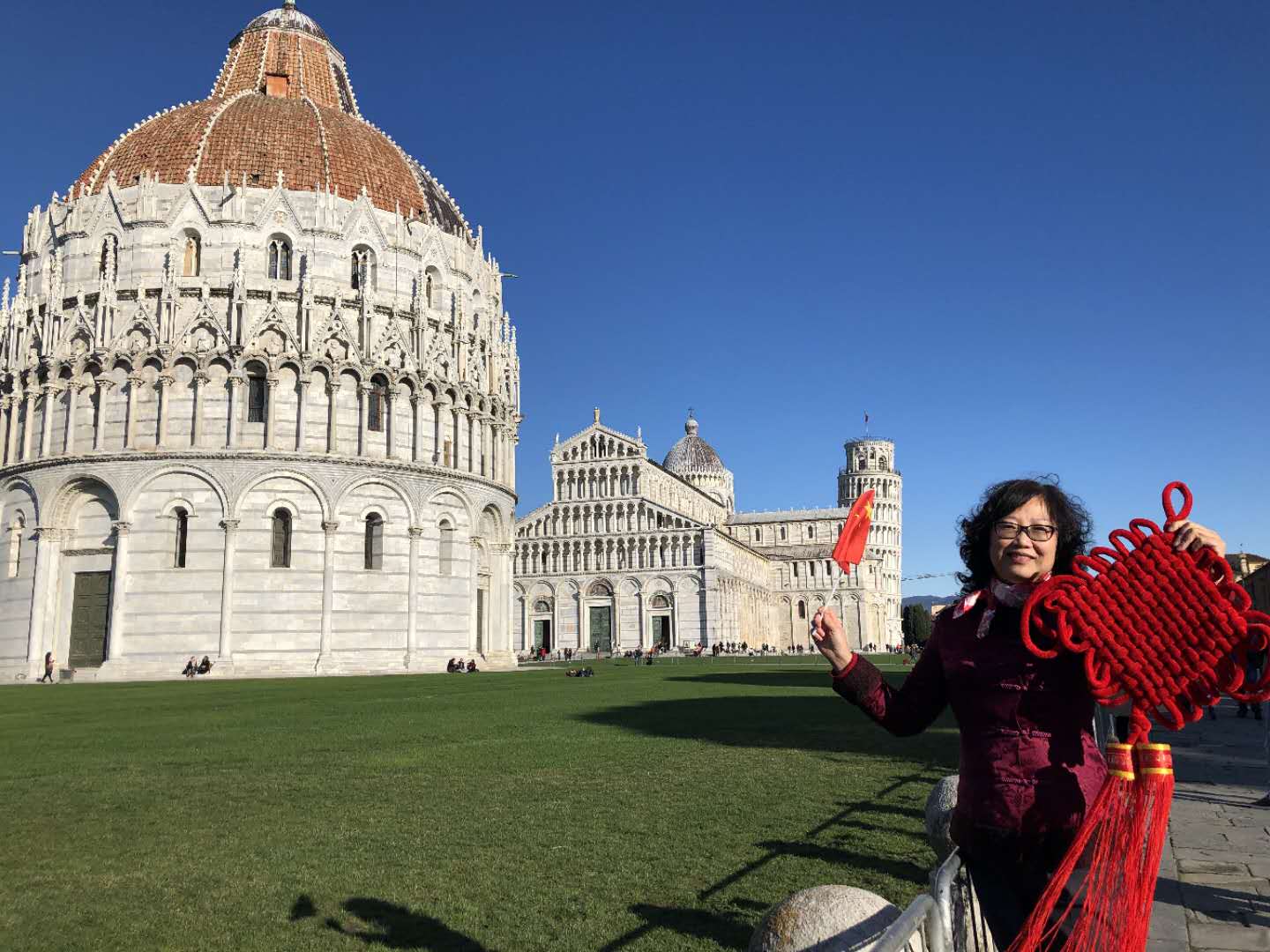
What is the role of the Confucius Institute of Pisa in general and related to the promotion of Chinese language education?
The CI of Pisa is trying to develop and facilitate the teaching of Chinese language in Tuscany region, promote exchange and cooperation between China and Italy on a cultural level, and deepen the knowledge of topics related to economics, political science, law and technology between Italy and China. Everyone in our group contributes to achieving this goal. The CI Italian Director, Professor Alberto Di Minin, has been playing a key role in leading this group. Giada Ali has been involved in the management of the Institute since its foundation in 2008, showing her efficiency and capability, while Fabiana De Carlo joined us last year and since then she has shown her good skills. We also have ten Chinese teachers: they always show their passion in teaching Chinese and developing Italian young people’s good understanding of Chinese culture and China. They spend hours travelling to different high schools and universities, willing to devote weekends organising activities.
Language is both an important mean of communication and a carrier of culture. By learning Chinese language, students are not only involved in the study of its character, pronunciation, and grammar rules, but they can also better understand China values, customs and behaviours because language is an essential tool to facilitate the comprehension of a culture. Besides, thanks to the increasing and deeper cooperation between China and Italy of the past few years, the master of Chinese language definitely helps in finding a good job and career advancement opportunities.
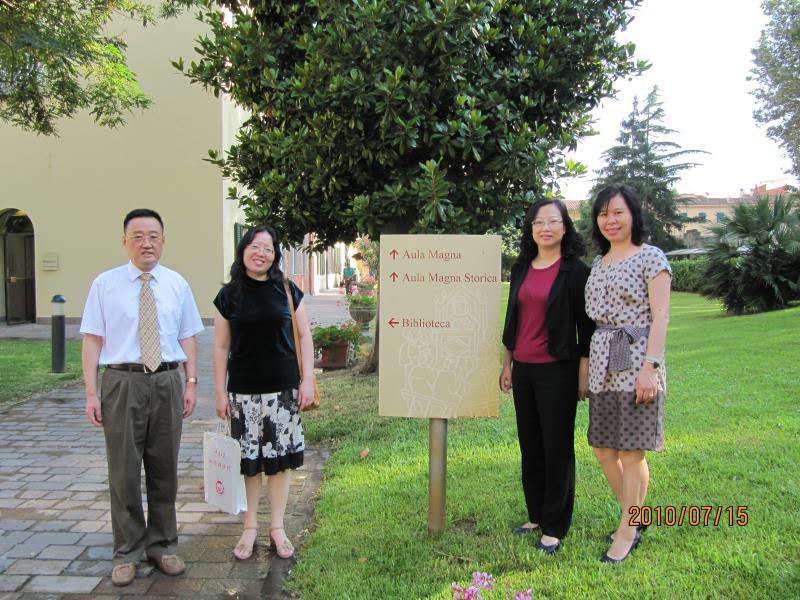
What are your biggest achievements during your tenure as Chinese Director of the Confucius Institute of Pisa and what are your goals in the future?
My first 2-year job term will soon be over this September and I can say we have achieved positive results. Although at the beginning it was not easy to adapt to a new life and challenges, I have now a clear understanding of my duties as the Chinese director of our CI. I’m looking forward to my next two years, learning from my experience and my own insights as CI director.
Regarding our goals, we are trying to keep all the regular projects on track while creating more cooperation opportunities for scholars from China and Italy in different fields. I really hope we can develop some projects this year to celebrate the 50th anniversary of the establishment of China-Italy diplomatic relations, which is a milestone in our long history of friendship and mutual exchange.
Thank you for your time Professor, we wish you an amazing day in Pisa.
Interview by Marco Bonaglia and Fabiana De Carlo




